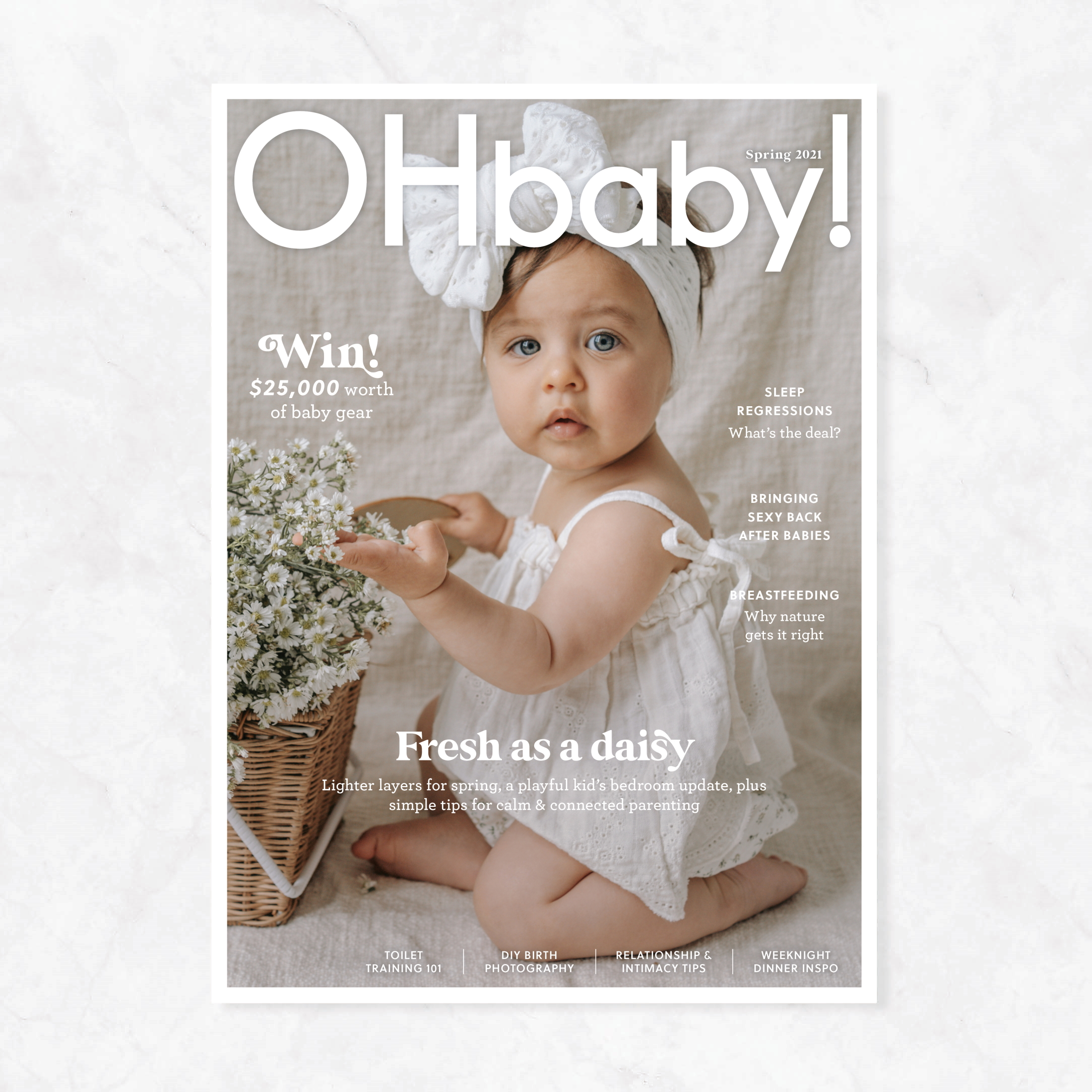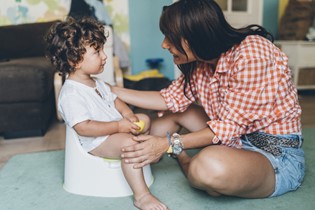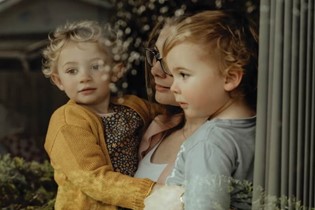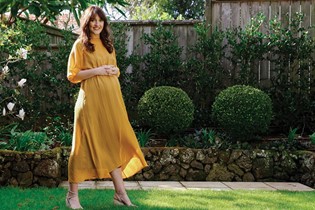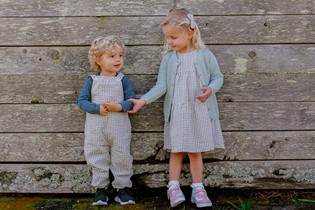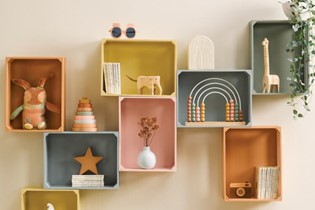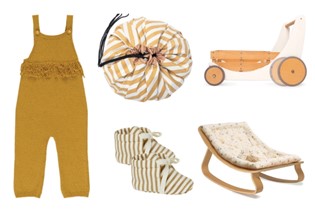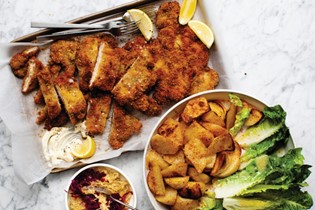Hormone changes, body image and expectations around sex after baby
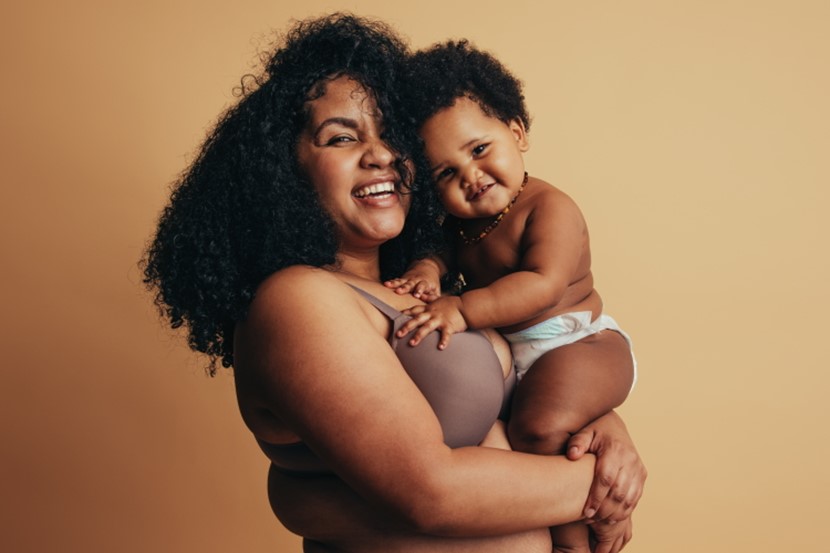
Between changing body shapes, hormone levels and the way we see our post-baby selves, intimacy with our partner can become a minefield. Sex therapist Jo Robertson shares her advice on overcoming the barriers.
BODY IMAGE
Some women feel glorious in their pregnancy or postpartum period; they feel full of their womanness, they marvel at their body, they feel empowered and luscious. But that’s not the story for all women – for many it's a struggle. They feel large, stretched, unattractive and at worst, disgusted. They become anxious that their partner now sees them differently, as less desirable or disappointing. To add to that, we live in a society that celebrates two things: perfect bodies and total confidence. We shame those who don't look perfect (by society's standards), but at the same time we also shame those who do not love every part of themselves. There are countless accounts on Instagram of people loving on their stretch marks and changed postpartum bodies.
I’m the first person to say that I love this shift, but I think it can sometimes shame people who don't feel that way or have that level of confidence. My body did the opposite of lots of other people's bodies postpartum – it got smaller. For years I struggled to stay at a healthy body weight; my body rejected weight as it grew and fed three small children. I have since discovered this was due to hormonal problems. But my shrinking size (to the surprise of others) impacted me negatively. In my smallness I felt unattractive, lacking female curves and lusciousness. I longed for larger breasts and a more womanly shape. I say this to acknowledge that someone's shape does not determine positive body image; that a small, thin person can feel betrayed by their body just like a larger person can.
It’s no surprise to anyone that how we view our body shapes our sex life with our partners. It can leave us wanting to hide in darkness, go under the covers or refuse intimacy altogether. Negative body image isn't just related to our bellies, breasts and legs. I’ve worked with many women who dislike their vulva or labia. They feel they can mentally overcome their stretch marks but can’t see past the size, shape or colour of their new vulvas. Birth can change our genitalia just like it can change other parts of our body. Scars and stretching can leave their mark on us, and society condemns that too. Perfectly groomed, small and hairless vulvas are unfortunately what we see in anatomy books and sexualised images. So what are some steps forward?
A. Look at other bodies. There are two fantastic resources I encourage you to look at: labialibrary.org.au and @the.vulva.gallery on Instagram. You’re not going to love reading every post but lots of it is helpful in normalising diverse vulvas. Did you know that half of all vulvas have internal labia (labia minora) that drop down past the external labia (labia majora)? These are called 'outies' and they are NORMAL, but society has stigmatised them. Another great resource is omgyes.com. You need to pay to access the site but it shows real women showing you their vulvas; unashamedly educating us on diversity. They also reveal what feels best for them when their vulvas are touched – it’s extremely educational.
B. Get out of your head and into your body. Turn out the lights, put on a candle, play music and use body oils. These all stimulate your senses and are more likely to distract you from your mental to-do list. Tell your partner to massage you before foreplay or intercourse, using deep pressure and beautiful smelling oils. Your body is more likely to focus on the sensations and be more heightened to pleasure. When you find your mind drifting away, bring it back into your body, think about the area that is being touched or give mental attention to your clitoris. This is going to keep you in the moment and bring you more pleasure. You could spend the whole time thinking “Oh no, my tummy rolls, my big legs.” Or you could focus on the tingles and pressure your body is feeling – we have the power to choose. Our brain is the most important sex organ we have! C. Adjust your lifestyle – eating healthy food and doing exercise isn't necessarily about weight loss. It can be about developing strength and confidence in your body. People can stay the exact same weight but because they feel stronger and fitter, they often become more confident, and prouder of their bodies and what they can achieve. Changing your eating and exercise patterns may not change what you look like, but it sure can change your mindset in intimacy. Unhealthy food is more likely to make us feel lethargic and tired, and when we have little babies we need all the energy we can get, not only to care for our young ones but also have some extra energy at night with our partners.
C. Adjust your lifestyle – eating healthy food and doing exercise isn't necessarily about weight loss. It can be about developing strength and confidence in your body. People can stay the exact same weight but because they feel stronger and fitter, they often become more confident, and prouder of their bodies and what they can achieve. Changing your eating and exercise patterns may not change what you look like, but it sure can change your mindset in intimacy. Unhealthy food is more likely to make us feel lethargic and tired, and when we have little babies we need all the energy we can get, not only to care for our young ones but also have some extra energy at night with our partners.
D. This feels counter-cultural to say, but I believe it's okay not to love every part of your body. It’s okay to think "My breasts are not what I would choose” without it leading to self-loathing. The goal doesn't have to be 100% self-love, it can be 100% self-acceptance. Someone may prefer a different labia but that doesn't mean they can’t be at peace with their own. Note: if your labia are creating physical discomfort then please see a gynaecologist. You may need medical support and it’s absolutely okay to reach out for that advice.
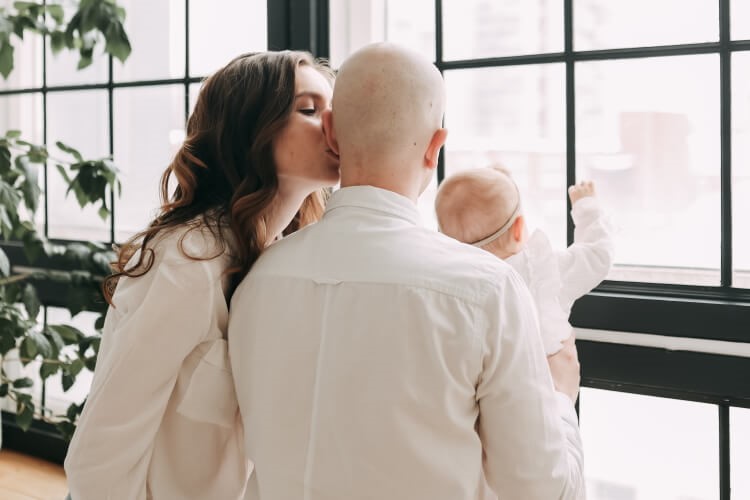
EXPECTATIONS
One thing I hear from clients all the time is “The sex is not like it used to be,” and they feel deep disappointment or confusion about this. Very commonly they feel they are letting their partner down, that they are the cause of this new 'less exciting' season. Unavoidably, our intimacy life does go through seasons. Sometimes it’s exhilarating and we easily roll into an orgasm, we have high levels of desire and find ourselves making out for hours in a car somewhere. This is often the experience of a new relationship; what our bodies are doing in this season is pushing us towards each other to figure out if the other person is a safe and good match for us. Our sexual desire is doing the groundwork, figuring out if we are into this person and pushing us to determine if they are long-term partner material. When we enter into a longer partnership or established commitment like getting married, our bodies can ease off, 'resting' into the safety of the connection. It doesn't happen to everyone, but please know that if this is you, your changing levels of desire are totally normal.
One strategy to build desire back up again is (surprisingly) to stop having intercourse and just focus on outercourse or foreplay. When we remove intercourse from the equation, everyone has to get more creative and go back to the basics of pleasure. Foreplay or outercourse is very often the more pleasurable part for females, and when you enjoy the activity, your body tends to want more of it! Desire is also shaped by the season of life we are in – when we’re tired with newborns or trying to push hard in our careers, our bodies have more to focus on and less capacity to build desire. The more we demand of our body, the more thinly spread it becomes and we often can't give as much in areas like intimacy. That's okay, it doesn't mean we have to stop the career push, and let’s be honest – we can't avoid the sleep deprivation of babies. We just need to shift our expectations for a time. I tend to think of relationships and sex like wandering through the wilderness holding hands. Sometimes you come to a clearing, it's sunny and easy to walk, there's nothing to trip on and you can enjoy the scenery. But other times you are in a tricky part of the wilderness, there are big trees and roots to trip over, you have to focus and be careful not to slip on the moss. There are easier and trickier seasons of intimacy, but the whole point is that you are holding hands, you are walking through the season together, knowing that this tricky patch won't last forever and that a clearing is coming up ahead.
HORMONES
I mentioned above that my hormones were wreaking havoc on my body. Due to a thing called ‘hypopituitarism’, my body didn't emit the right amount of oestrogen. Oestrogen is the female sex hormone, and having low oestrogen can make penetration more painful and decrease sexual desire. This is not an issue for me now, however it was problematic in the past. Oestrogen levels change over the course of our lives but also over the course of a monthly cycle. When the body is ovulating, around day 14 of a period cycle, oestrogen can create more arousal; often leading to better intimacy. Unfortunately for some, this is the exact time they try to avoid having sex if they don't want to get pregnant. Basically our body is saying “Yes please, make a baby now, I’ll make it fun for you.” At the end of the cycle and going into the beginning of a period, oestrogen is at its lowest and says “You didn't make a baby, so I'm going to put desire to sleep for a bit.” Then when menopause strikes, the oestrogen takes a dive again and unfortunately stays low, because the body knows this isn’t baby-making time and it can rest into a new season.
Most breastfeeding women are also experiencing an oestrogen low; your body doesn't want to make another baby so it's decreasing desire and giving you time to nourish this new life without getting pregnant again. It’s all really quite amazing when you think about it. I encourage people who aren't on hormonal contraceptives to take note of their cycle, becoming more attune to the changes happening in their body, and as a result being more accepting of the stage they are in. Lots of people expect their bodies to act ‘on demand’, that it should just function the same way all the time and almost shame it for not being what we want it to be. However, without medication, we can't force our bodies into a different hormone stage, we must ride the wave and learn to move with it.
Having low oestrogen doesn't mean you need to stop having intimacy, however it may require a slightly different approach. Maybe less focus on intercourse, and more on outercourse. Less focus on ticking the box and getting sex done for that week, and more focus on connection and pleasure. Lots of people rush to the intercourse part, not even allowing themselves to build arousal and desire, and in a low-oestrogen season this can make sex less pleasurable and in some cases, painful.
If you're looking for a quick takeaway tip: buy good-quality lubricant. Two brands that I strongly recommend are Pjur and Bonk – you use less quantity because they are good quality; lasting longer and making it easier for the slower sessions that some seasons of life require.
Jo Robertson is a sex therapist with a focus on helping couples restore intimacy, or with problematic sexual behaviours. Jo lives in Auckland with her husband and their three boys. jorobertson.org, @sextherapistjo

AS FEATURED IN ISSUE 55 OF OHbaby! MAGAZINE. CHECK OUT OTHER ARTICLES IN THIS ISSUE BELOW
